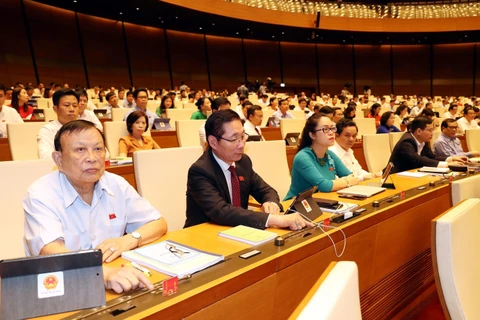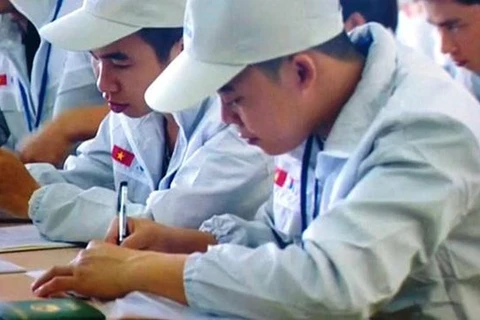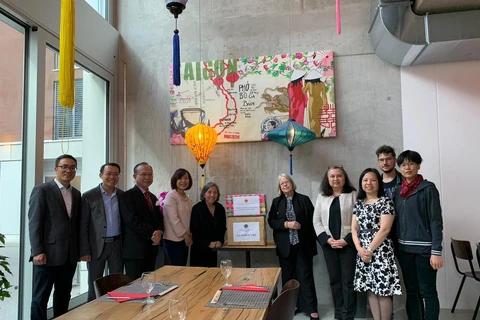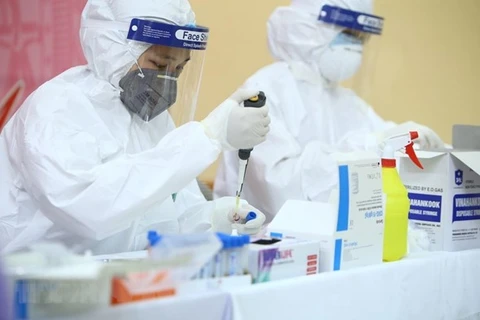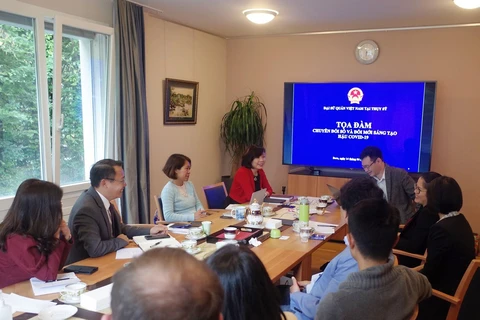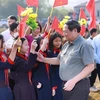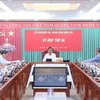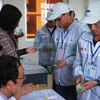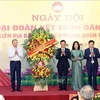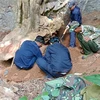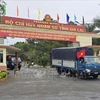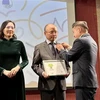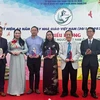Hanoi (VNA) – An online conference took place between Vietnam’s Ministry of Labour, Invalids and Social Affairs (MoLISA) and Switzerland’s Federal Department of Economic Affairs, Education and Research (EAER) on June 23, discussing ways to enhance the sides’ post-COVID-19 labour cooperation.
Speaking at the event, MoLISA Deputy Minister Nguyen Thi Ha stressed that the pandemic’s impacts on the economy, labour, and employment vary among countries. Amid increasing global integration, seeking collaboration and sharing information and experiences will help countries overcome the hardship together, she added.
The official informed the conference that the most vulnerable groups are informal, non-contract, low-income, young, senior, female, and migrant workers.
She shared data from the International Labour Organisation (ILO) that estimated more than 22 million Vietnamese labourers face high employment risks due to COVID-19.
The Vietnamese Government has taken measures to control the epidemic while maintaining production, and ensuring social stability, she went on, adding that in May, more than 5,000 firms resumed operation and the number of newly established ones was 36.1 percent higher than that of the previous month.
Ha hoped the Swiss side and the ILO will work with Vietnam and the MOLISA in realizing their goals related to job security and good preparation of human resources and labour policy to welcome investment opportunities and strengthen the local workforce market.
Participants from both ministries exchanged information on helping workers get back to work. They said restructuring the labour force should focus on training and re-training to create and maintain jobs after the pandemic.
At the conference, the two sides signed a memorandum of understanding, which reiterated their commitments to ILO goals and labour cooperation. The pact is set to be implemented via high-level dialogues, experts’ meetings, joint conferences and economic collaboration programmes./.
VNA

